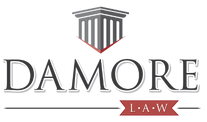When buying a home with a mortgage loan, it’s important to know about all the costs you’ll be on the hook for. Among those expenses may be mortgage insurance, which can significantly impact the cost of your loan and your ability to buy a home.
We’ll cover everything home buyers should know about mortgage insurance, including what it is, how you can pay for it, and approximate costs involved.
What Is Mortgage With Insurance?
A mortgage with insurance is a type of home loan that requires the borrower to purchase mortgage insurance, also known as private mortgage insurance (PMI), in order to protect the lender in case the borrower defaults on the loan.
Typically, insurance is required when a borrower puts down less than 20% of the home’s value as a down payment. The insurance premium is typically added to the borrower’s monthly mortgage payment and is paid until the loan-to-value ratio reaches 80% or less, at which point the borrower can request that the insurance be canceled.
Purchasing a mortgage with insurance helps lenders reduce their risk and allows borrowers to qualify for a mortgage with a lower down payment. However, it also adds to the overall cost of the loan, as borrowers are required to pay insurance premiums in addition to their principal and interest payments.
Ultimately, an insured mortgage protects the lender in the event that you fall behind on your payments. If you fail to make payments, your credit score will suffer and you risk losing your home through foreclosure.
What Does Mortgage With Insurance Cost?
Mortgage insurance costs vary depending on the type of insurance you have. On average, homebuyers can expect to pay .1% – 1% of your home loan amount annually with PMI.
Your premiums for PMI will depend on:
- Your PMI type
- If the interest rate is fixed or adjustable
- The mortgage term, or the length of your home loan
- Your loan-to-value (LTV) ratio
- The insurance coverage amount required by your lender
- Your credit score
- Your home’s value
- Whether the premium is refundable
- Additional risk factors.
For example, those with a lower credit score and who put down a minimum down payment will have a higher cost of mortgage insurance.
Types of Mortgage Insurance
There are two main types of insurance for mortgages: Private Mortgage Insurance (PMI) and government-backed mortgage insurance, such as the Federal Housing Administration (FHA) or the Department of Veterans Affairs (VA) insurance.
Government-backed mortgages require insurance or a funding fee. These types of loans have different requirements and may be more suitable for some borrowers depending on their financial situation and needs.
Here are some of the differences between PMI and government-backed mortgage insurance that home buyers should be aware of.
1. Eligibility
PMI is typically required for conventional loans when the borrower’s down payment is less than 20% of the home’s purchase price. Government-backed mortgage insurance, on the other hand, is often required for loans that are backed by the government, such as FHA loans or VA loans.
2. Cost
PMI premiums vary based on factors such as the loan-to-value ratio (LTV) and credit score of the borrower. The cost of government-backed mortgage insurance is set by the government and varies based on the type of loan and the size of the down payment.
3. Coverage
PMI covers the lender’s risk in case the borrower defaults on the loan. Government-backed mortgage insurance covers the lender’s risk as well as some of the borrower’s risk.
4. Cancellation
With PMI, the borrower can typically request to cancel the insurance when the loan-to-value (LTV) ratio drops to 80% or less. With government-backed mortgage insurance, the borrower can request to cancel the insurance when the LTV ratio drops to 78% or less. However, government-backed mortgage insurance is usually required for the life of the loan if the borrower makes a down payment of less than 10% on an FHA loan.
By understanding how mortgages and insurance work, you can make informed decisions about your home purchase and financing options. You can also calculate the added cost of an insured mortgage and factor it into your budget and monthly mortgage payments. Additionally, knowing about mortgage insurance can help you evaluate different loan options and determine which ones may be the most affordable for your financial situation.
DaMore Real Estate Law Services
Buying a home can be overwhelming, but we’re here to walk you through the process. We can help you decide which loan option is right for you and make sure everything moves smoothly. Request a consultation and one of our skilled attorneys will be happy to discuss your real estate closing.

